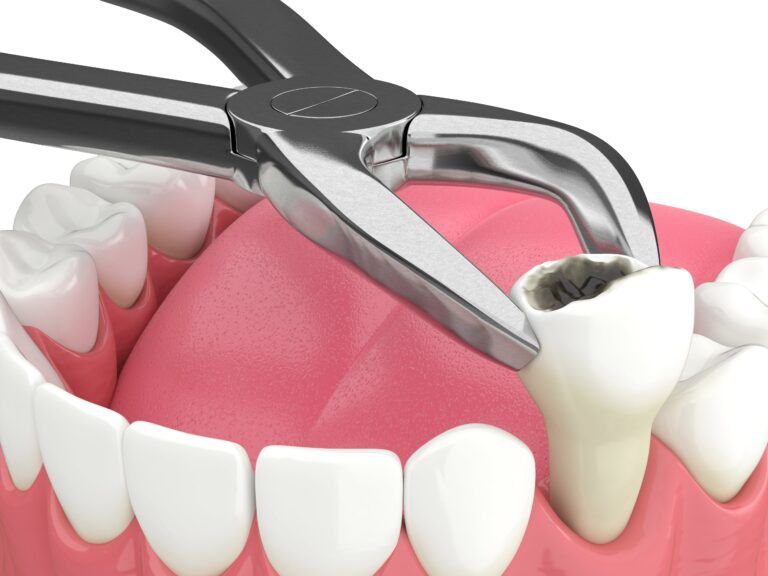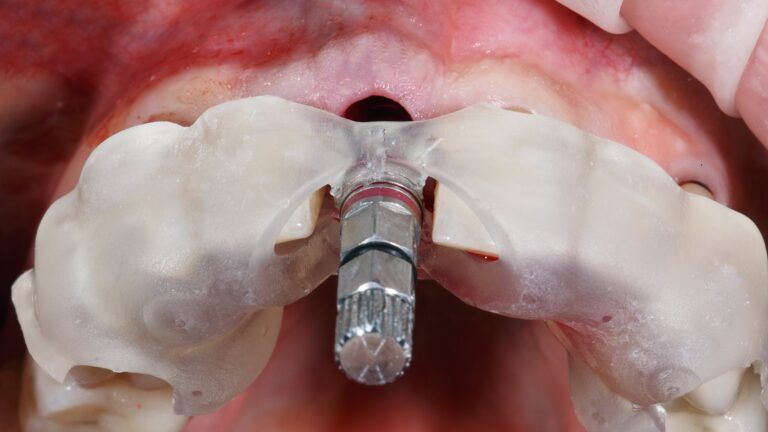In recent years, dental implants have revolutionized the field of dentistry, offering a reliable and long-lasting solution for replacing missing teeth. As the aging population continues to grow, the need for dental implants among older adults has become increasingly prominent. In this blog, we will explore the impact that age has on dental implant treatment and discuss the various considerations and adaptations necessary to ensure successful outcomes for older patients.
Age-Related Factors Affecting Dental Implant Treatment
Age-related factors can significantly influence the success and outcomes of dental implant treatment. Let’s explore some of these factors and how they impact the process:
Bone density and quality:
As individuals age, there is a natural decline in bone density and quality. This decrease in bone mass, known as osteoporosis, can affect the stability and integration of dental implants. Reduced bone density may lead to a higher risk of implant failure or complications during the osseointegration process—the bonding of the implant with the jawbone.
Osseointegration can also be affected by a process known as bone resorption. Bone resorption, the natural process of bone loss over time, can significantly impact dental implant placement. When a tooth is lost or extracted, the surrounding bone that once supported the tooth starts to resorb or shrink due to the lack of stimulation. This can lead to a decrease in available bone volume and density, which are crucial for successful implant placement. Insufficient bone volume may require additional procedures such as bone grafting to augment the area and provide a stable foundation for the implant. Moreover, bone resorption can compromise implant stability and integration, increasing the risk of implant failure.
Overall health considerations:
Overall health considerations play a crucial role in dental implant placement for older adults. As we age, we are more likely to have systemic health conditions such as diabetes, cardiovascular diseases, or osteoarthritis. These conditions can impact the success of dental implant treatment and the healing process. Medications used to manage these health conditions can also influence implant outcomes and the body’s ability to heal. Therefore, a thorough evaluation of the patient’s medical history is essential to identify any potential risks or contraindications. By considering and managing these overall health considerations, dental professionals can optimize the safety and success of dental implant placement for older adults.
Oral health conditions:
Age-related oral health conditions can have a significant impact on dental implant placement. One of the most common conditions is periodontal disease, which becomes more prevalent with age. Periodontitis, characterized by gum inflammation and bone loss, can weaken the supporting structures around natural teeth and implants. Treating and managing periodontal disease before proceeding with implant treatment is crucial to ensure a stable and healthy oral environment. Additionally, older adults may have experienced tooth loss or extensive dental work over time, which can result in inadequate bone volume or compromised oral structures. These factors may necessitate additional procedures, such as bone grafting or sinus lifts, to augment the bone and create a suitable foundation for the implant. Thorough evaluation and treatment of age-related oral health conditions are vital to ensure the success and longevity of dental implant placement in older adults.
Healing capacity:
Healing capacity is an important consideration in dental implant placement, and it can be affected by age. As we age, the body’s natural ability to heal and regenerate tissues decreases. This reduced healing capacity can impact the integration of dental implants and the speed at which the surrounding tissues recover after surgery. Older adults may experience a slower healing process, which can prolong the overall treatment timeline. Close monitoring, proper post-operative care, and regular follow-up appointments are crucial to ensure optimal healing and implant success. Additionally, dental professionals may need to adjust the treatment plan and provide additional support, such as specialized post-operative instructions or medications, to enhance healing and minimize the risk of complications. By considering the age-related changes in healing capacity, dental implant placement can be tailored to optimize outcomes and promote successful integration of the implants with the surrounding tissues.
Medications:

Certain medications taken by older adults can have an impact on dental implant placement. Medications such as blood thinners, bisphosphonates, and immunosuppressants are commonly used to manage various health conditions in older individuals. Blood thinners, for example, can increase the risk of bleeding during implant surgery, requiring special precautions and coordination with the patient’s healthcare provider. Bisphosphonates, often prescribed for osteoporosis or cancer-related conditions, may affect bone healing and integration of implants, necessitating careful consideration and potential modification of the treatment plan. Immunosuppressants can compromise the body’s ability to fight infections, which may increase the risk of implant-related complications. It is crucial for dental professionals to be aware of the medications their older patients are taking and collaborate with their healthcare providers to develop a safe and effective treatment approach. Adjustments in the timing or dosage of medications may be necessary to ensure optimal implant outcomes and minimize potential risks associated with the medications.
Functional considerations:
Age-related functional considerations can significantly impact dental implant placement in older adults. As we age, there may be changes in muscle strength, coordination, and oral function. These functional changes can affect the overall success and stability of dental implants. Reduced muscle strength and coordination may impact chewing efficiency and oral hygiene practices, potentially leading to difficulties in maintaining proper oral health. Dental professionals take these functional considerations into account when planning the restoration supported by dental implants. The shape, size, and materials used in the restoration may be adapted to enhance stability, chewing efficiency, and speech clarity. By addressing these age-related functional considerations, dental professionals can ensure that the implant-supported restoration restores oral function, promotes a comfortable bite, and improves overall quality of life for older adults.
It’s important to note that while age can pose some challenges for dental implant treatment, it doesn’t necessarily exclude older adults from being suitable candidates. Dental professionals, in collaboration with medical teams, can tailor treatment plans, utilize advanced techniques, and provide necessary adaptations to ensure successful implant outcomes for older patients.
Adaptations and Considerations for Older Adults in Dental Implant Treatment
Implant dentists take several adaptations and considerations into account when placing dental implants in older adults to ensure successful outcomes. Here are some key factors they consider:
Comprehensive assessment:
Implant dentists conduct a thorough assessment of the patient’s oral health, including evaluating the condition of the remaining teeth, gums, and jawbone. They also take into account any age-related oral health conditions or functional limitations that may impact implant placement.
Medical history evaluation:
Dentists review the patient’s medical history to identify any systemic health conditions or medications that could affect the implant procedure or healing process. Collaboration with the patient’s healthcare providers is crucial to ensure a coordinated approach to treatment.

Bone density evaluation:
Implant dentists assess the quantity and quality of the patient’s jawbone to determine if additional procedures, such as bone grafting or sinus lifts, are needed to augment the bone and provide a stable foundation for the implant.
Treatment customization:
Each patient’s implant treatment plan is customized to address their specific needs. This includes determining the number and position of implants, selecting the appropriate implant size and design, and considering the type of restoration (such as crowns, bridges, or dentures) that will best meet the patient’s functional and aesthetic goals. In some cases, it can also mean placing zygomatic implants or mini dental implants (MDIs) instead of traditional implants.
Surgical techniques:
Implant dentists adapt their surgical techniques to accommodate age-related factors such as reduced bone density, increased fragility, and potential functional limitations. Gentle surgical approaches are used to minimize trauma and optimize healing. Oftentimes, implant specialists utilize advanced dental implant technology to minimize surgical trauma and maximize patient benefits.
Anesthesia options:
Dentists carefully choose anesthesia options, taking into account the patient’s medical conditions and medications, to ensure their comfort and safety during the implant placement procedure.
Post-operative care and maintenance:
Implant dentists provide thorough post-operative care instructions and schedule regular follow-up appointments to monitor the healing process and address any concerns. They emphasize the importance of meticulous oral hygiene practices and may recommend specialized cleaning techniques or products for older adults.
Patient education and communication:
Implant dentists prioritize effective communication and patient education. They provide detailed explanations of the treatment process, potential risks, and expected outcomes. They address any concerns or anxieties the patient may have, fostering a trusting relationship and ensuring the patient feels informed and comfortable throughout the treatment journey.
In Conclusion:
As we age, maintaining good oral health becomes increasingly crucial for overall well-being. Dental implant treatment offers a reliable and durable solution for older adults seeking to restore their smiles and regain oral function. By considering age-related factors, dental implant specialists can ensure successful outcomes and positively impact the lives of older patients. If you’re an older adult considering dental implants, don’t hesitate to explore this transformative option and enhance your oral health and quality of life. For more information on how dental implants can give you a younger smile, schedule a consultation with Dr. Atcha of New Teeth Chicago Dental Implants today.

Irfan Atcha, DDS, DICOI, DADIA at New Teeth Chicago Dental in Chicago, Illinois is a board-certified general dentist and a nationally recognized expert in dental implants, cosmetic dentistry, and sedation dentistry. Dr. Atcha is now serving patients in Naples, Bonita Springs and SW FL area with All-on-4 implants, teeth-in-a-day, same day dental implants and the complex zygomatic dental implants for the no-jaw bone solution approach. To schedule a consultation please email Dr. Atcha at teethforyou@gmail.com.





